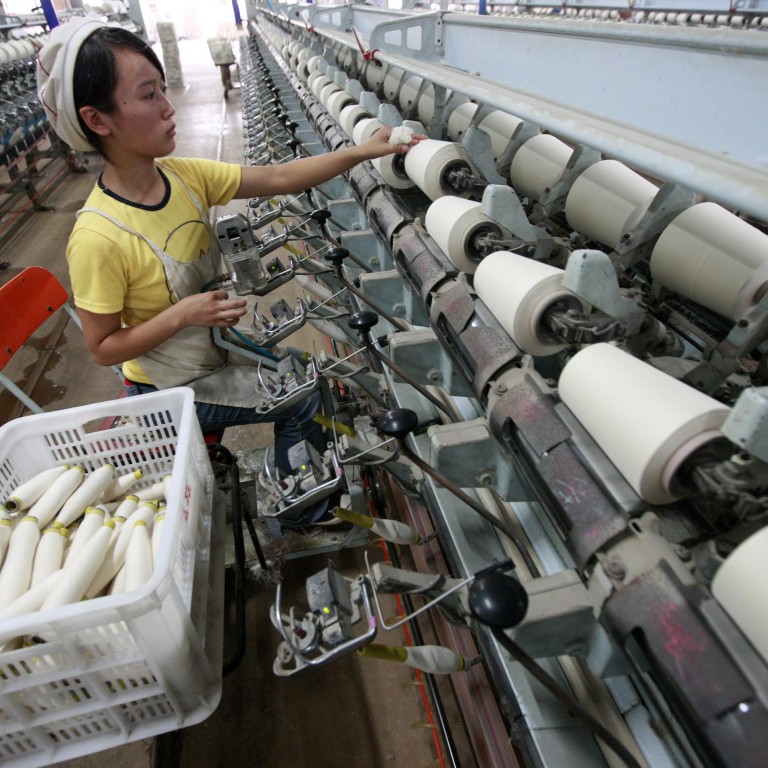
Chinese factory manager from Hong Kong walks daily tightrope
George has learned that his survival depends on maintaining delicate balance of power among backstabbing staff from different regions
After writing about corporate affairs on the mainland for more than two decades, thought she knew something about that world. But after speaking to George, I realise I have not even scratched the surface.
He does not have a face or charisma that one would remember. But this is a Hong Kong-born guy who has managed an IT factory on the mainland for more than a decade.
And that is something. Hongkongers are hired for two reasons. They are either there to train up the locals, or to act as a guard dog against their fishy moves. For obvious reasons, they rarely last long.
Not many make it to 10 years. Indeed, of the 10 outsiders who started the factory, George is the only survivor.
His survival is not down to special skills or knowhow, nor is he the son of someone influential. And he does a high-risk job - double checking most invoices the factory has to pay and most of the hiring it does.
How has he survived? "The matrix," he replied.
That has nothing to do with the factory's products. It is instead a matrix of human beings.
"It is about making sure there is a balance of power among people from different areas," George said.
Balance not in the philosophical sense, but in the numerical one. The matrix shows the number of people the factory has hired from the country's 22 provinces, four municipalities and five autonomous regions.
"You want to make sure not a single area is dominating," he said. "It's not about those much-reported gang fights, but the loss of control if you have too many from one province."
People from the same area tend to gang up, and not just because of differences in dialect and culture. Real interests can be at stake.
That is because hiring on the mainland is often done by word of mouth. When there are some vacancies, a guy will get his siblings and friends from the same village and so on. Goodies, if not loot, are shared to make sure everybody is on board.
A colleague of George's from Taiwan learned this the hard way. His team managed to conceal a major production problem from him. By the time he knew about it, it was already time to pack.
He was only nine months into the job.
"A good balance in the team makes sure you won't be shut out," George said.
"It also brings you a natural check and balance because a Cantonese will love to see a Shanghainese toasted."
So his matrix involves breakdowns according to ranks and departments. Meaning that if the head of the supplies department is Shanghainese, the accounts department which signs off on its claims will be headed by a Cantonese, and the human resources department will in turn be controlled by a Beijinger.
At the same time, the deputy of the supplies department is not from Shanghai, the No2 accounts monitor is not from Guangdong and so on and so forth.
By the way, the security guards at his dormitory come from three different provinces.
"I will let some dubious deals involving tiny sums go. But you bark and get bit - you want to make sure you don't lose your life for that," George said.
Is he paranoid? Well, it's hard not to be when you read about the killing of a financial controller from Hong Kong in 2011.
The woman, who worked at the Shanghai branch of an overseas shipping company, was stabbed to death in her apartment by a secondary school student. Police found that the student was hired for 150,000 yuan (HK$190,000) by one of the woman's colleagues, who was worried that she might have uncovered a 7.5 million yuan embezzlement.
However, George's mastery of the matrix is not enough to put him at ease. His European boss has received four letters from "informers" targeting George, all written in Google-translated English.
"Your boss may throw the first one into the bin," George said. "But when there is a second and third one, he will wonder if anything funny is going on."
George is safe because he long ago set up a system which marks every employee or supplier according to some objective criteria. He doesn't have much problem defending his decisions.
It still hurt, though, when he found in the letters some remarks made casually in personal chats.
He no longer dines with anyone from the office and is alone most evenings. He travels back to Hong Kong every weekend. "My head begins to hurt the minute I cross the Lo Wu Bridge," he said.
If you find the thought of this terrible, imagine the challenge by having to say the right thing politically. Multiply that by tens or hundreds, depending on staff size.
Now I've begun to appreciate the difficulty of being a mainland corporate manager, and the reason behind many apparently senseless moves.

